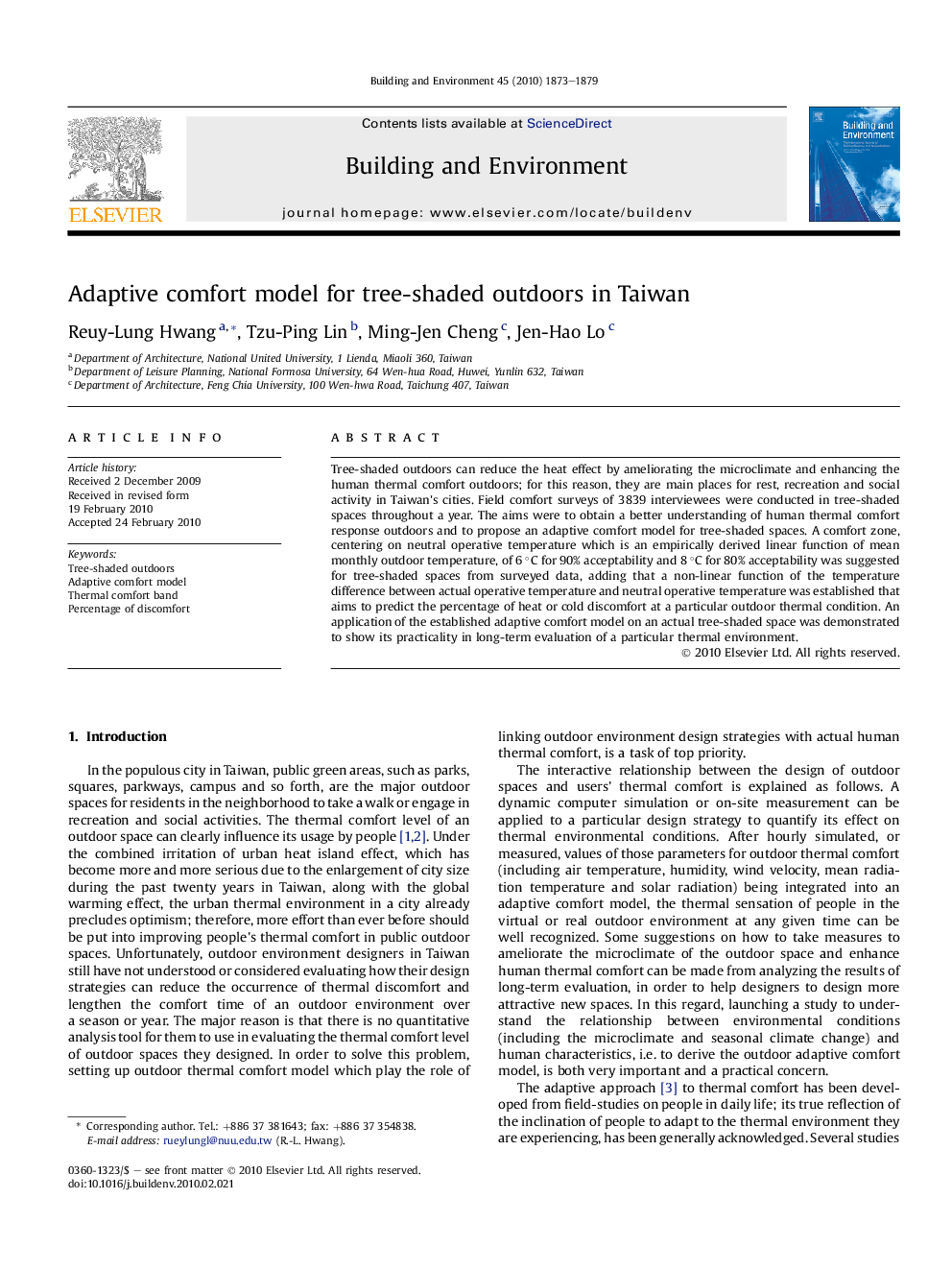| Article ID | Journal | Published Year | Pages | File Type |
|---|---|---|---|---|
| 249033 | Building and Environment | 2010 | 7 Pages |
Tree-shaded outdoors can reduce the heat effect by ameliorating the microclimate and enhancing the human thermal comfort outdoors; for this reason, they are main places for rest, recreation and social activity in Taiwan's cities. Field comfort surveys of 3839 interviewees were conducted in tree-shaded spaces throughout a year. The aims were to obtain a better understanding of human thermal comfort response outdoors and to propose an adaptive comfort model for tree-shaded spaces. A comfort zone, centering on neutral operative temperature which is an empirically derived linear function of mean monthly outdoor temperature, of 6 °C for 90% acceptability and 8 °C for 80% acceptability was suggested for tree-shaded spaces from surveyed data, adding that a non-linear function of the temperature difference between actual operative temperature and neutral operative temperature was established that aims to predict the percentage of heat or cold discomfort at a particular outdoor thermal condition. An application of the established adaptive comfort model on an actual tree-shaded space was demonstrated to show its practicality in long-term evaluation of a particular thermal environment.
